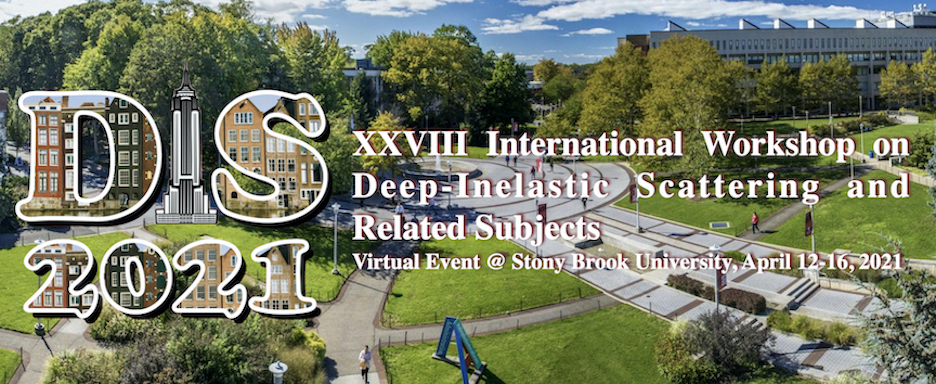Speaker
Description
The Solenoidal Tracker at the Relativistic Heavy Ion Collider (STAR) experiment probes the gluon helicity distribution $\Delta g(x, Q^2)$ using collisions of longitudinally polarized protons at $\sqrt{s} = 200$ GeV and $\sqrt{s} = 510$ GeV. $\Delta g(x, Q^2)$ can be accessed through the double spin asymmetries $A_{LL}$ in gluon-dominated hard scattering processes via inclusive jet and di-jet production.
Previously published results on inclusive jet production at $\sqrt{s}=200$ GeV and mid-pseudorapidity $|\eta_{\mathrm{jet}}| < 1$ are based on data corresponding to an integrated luminosity $L = 20$ pb$^{-1}$ with an average beam polarization $P = 57\%$. When included in perturbative QCD analysis of global data, they provide evidence for positive gluon polarization for the momentum fraction $x > 0.05$ at a hard perturbative scale $Q^2 = 10$ GeV$^2$. This talk will cover the inclusive jet and di-jet $A_{LL}$ measurements based on the most recent data with an approximately twice larger figure of merit, $LP^4$, and with improved systematic uncertainties, compared to the published results. The status of the jet $A_{LL}$ measurements at $\sqrt{s} =$ 510 GeV, which will constrain $\Delta g(x, Q^2)$ at lower $x$, will be also discussed.

